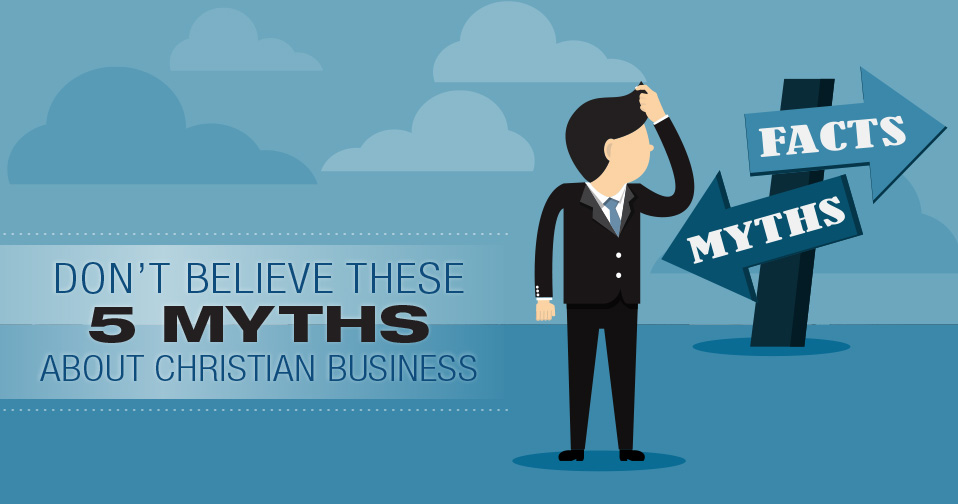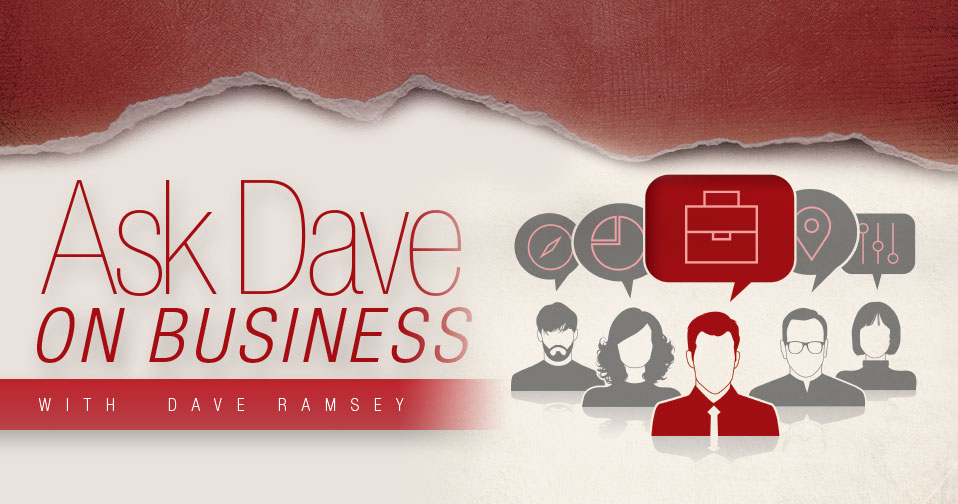Ask Dave On Business With Dave Ramsey

When A Hobby Becomes A Business
- Dear Dave,
In your opinion, how do you know when a hobby officially becomes a business?
— Dan
- Dear Dan,
This is a great question. But when it comes to something like this, my opinion doesn’t matter nearly as much as what the Internal Revenue Service says.
According to the IRS, if you run a business for two years or more without making a profit, then it is not a business. You have to become profitable at some point. Otherwise, the IRS will declare your endeavor a hobby. Personally, I think that’s a pretty good marker. I mean, if you’re making money at something, it’s a business. It’s an income.
Now, I’m not talking about little tidbits, like making a doily for a friend for $5. But if you’re at the point where you’ve created an online store, or have a Pinterest strategy for displaying your product and making sales internationally, then your little hobby has become a business. But a business that doesn’t make money is simply a hobby. The difference is profit. And you need to become profitable in a reasonable period of time. If this doesn’t happen, you should probably just back up, admit your intent isn’t for profit and think about focusing any business aspirations you have somewhere else.
Still, there’s absolutely nothing wrong with having a hobby as long as you realize that’s what it is and you don’t let it negatively impact your financial well-being. Lots of people collect or make things, and it’s a stress reliever—it’s fun. They had no intention of making a profit from day one. Just make sure you love whatever it is you pour yourself into. Then, if it turns into something that’s a moneymaker, you’ll have the satisfaction that goes with loving what you do for a living. That’s a great feeling!
— Dave
A partnership doesn’t sail
- Dear Dave,
My fiancée has a small photography business, and she wants to form a partnership with a college student who is majoring in business. I think this is a bad plan, but I’m pretty sure she’s not going to listen to me. What do you think about the idea?
— Bruce
- Dear Bruce,
A partnership is always a bad idea. There’s absolutely no upside for her, and if you feel there’s nothing you can do to keep her from making such a ridiculously bad mistake, then you guys are going to have issues in your marriage, too. It sounds like she’s looking for emotional support combined with some business acumen. But that doesn’t mean she needs a partner, and she definitely doesn’t need one who’s still in school and has no experience.
If she feels like she needs help, there are ways to do it without turning this into a partnership. She could hire this person and let them share in profits while she owns 100 percent of the business. That’s not a bad idea at all. But she needs to stop and take a breath, because if she walks headfirst into creating a partnership with this person, she’ll most likely lose clients, then sections of her business and finally a friend. On top of it all, it will create marriage strife.
As I said before, partnerships are never a good idea. But this situation goes much deeper than business practices. You two must learn to listen to each other’s instincts and make decisions together. If you can’t do that, then you don’t need to get married. And by the way, this is not an issue about the husband being the boss. You should be willing to listen to that little voice inside her, too, when it says something doesn’t seem right!
— Dave
Do You Really Want To Sell?
- Dear Dave,
I’m thinking about selling my business to a corporation. If I do this, I’d continue to work there for a couple of years after the sale. I’m not sure about the feelings I’ll have during this time, plus I worry about how the new ownership will treat my team after the sale. Do you have any advice for someone in this situation?
— Paul
- Dear Paul,
First, I don’t think you’re messing your team over or violating the principles of EntreLeadership by simply selling your business. The fact that you’re concerned about these issues tells me that you’re a quality person and a servant leader. Just remember, as long as you’re there—whether as an owner or just a leader—you have an obligation to look out for your team and do good things for them.
The big thing that scares me in this scenario is the next two years may be the most miserable of your life in the workplace. It’s tough seeing someone else come in and take over what you’ve built up over the years. You’ve poured your time and blood, your sweat and tears into this organization. It’s yours! You might even want to shorten the time you remain there a bit, if you’re certain this is the path you want to take.
But to tell you the truth, I’m not sure you really want to sell this business. There’s nothing wrong with turning down an offer, no matter how generous it may seem. Considering how much you seem to care about the business and the people, I’m just not convinced you’re ready to walk away. Now, if there’s something else you’ve got a burning desire to do, then I’d say go for it. I understand that kind of thing completely. But it’s a blast to have a job you love and look forward to going to every day.
I’d take some more time to think about it, if I were you. There may be a big pile of cash waiting for you if you sell, but I can tell you’re concerned about your team and the amount of time you’ll be spending as an employee at the company you created and grew into a success. Use your heart and your head on this one, Paul. But if you decide to sell, I’d work things to where I had to spend as little time there as possible once the new owners take over.
— Dave
Limiting The Liability
- Dear Dave,
I co-own a property in Florida with my business partner. I’m considering paying off the property and implementing an LLC to limit my liability. Does this sound like a good idea?
— Leigh
- Dear Leigh,
Doing that would take the general liability off of you, but it wouldn’t do anything to relieve the financial liability, because you’d still be on the mortgage. Why not just buy out the partner instead?
I’d choose having a mortgage over having a partner any day. Let’s say the house is worth $120,000, and $60,000 is owed, then it would cost you $30,000 to buy him out of your half—the full market value minus the mortgage and expenses it would take to sell the place. Or, if neither of you wants the house, and then you sold it, you could split the results. That would be around $20,000 to $25,000 each after the dust settles.
If it were me, I’d either buy out the partner for $25,000 and pay off the mortgage or let your partner buy you out for $25,000—as long as they’re willing to take your name off the mortgage or get a new one completely.
Get rid of the partner, and then get rid of the debt. Both of them are trouble, but partners are an even bigger headache than debt!
— Dave

By: Dave Ramsey
Dave Ramsey is America’s trusted voice on money and business. He’s authored four New York Times best-selling books: Financial Peace, More Than Enough, The Total Money Makeover and EntreLeadership. The Dave Ramsey Show is heard by more than 6 million listeners each week on more than 500 radio stations. Follow Dave on Twitter at @DaveRamsey and on the web at daveramsey.com.
Read More Articles by Dave Ramsey





